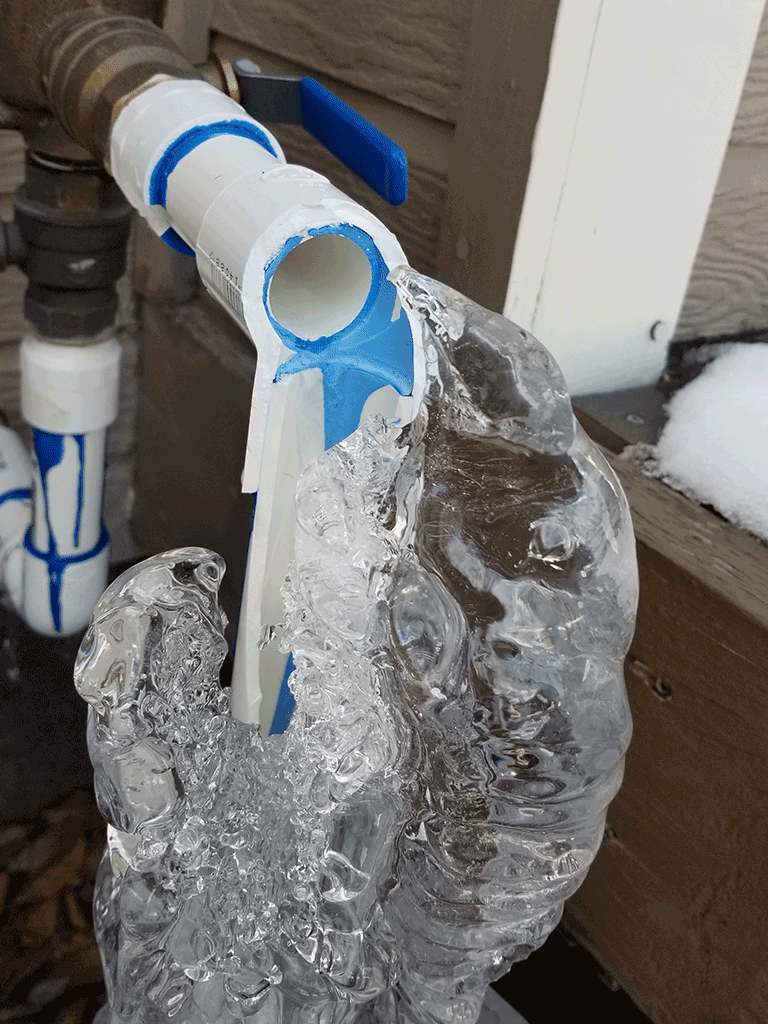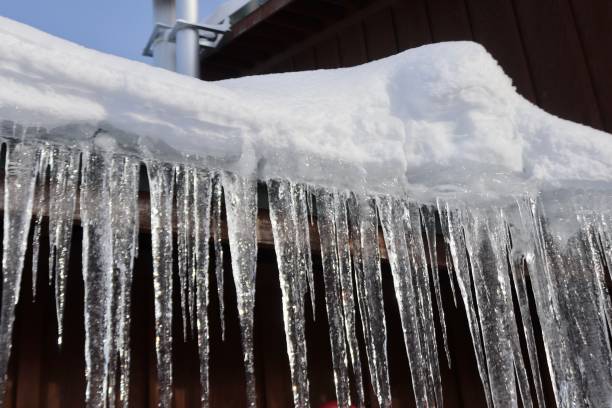Protecting Against Frozen Plumbing in Cold Weather: Expert Strategies
Protecting Against Frozen Plumbing in Cold Weather: Expert Strategies
Blog Article
Just about every person seems to have their unique concepts on the subject of Preventing and dealing with frozen pipes.

Winter can wreak havoc on your plumbing, especially by freezing pipes. Here's exactly how to prevent it from happening and what to do if it does.
Introduction
As temperature levels decline, the threat of icy pipes increases, potentially causing pricey repairs and water damages. Understanding just how to stop frozen pipes is critical for house owners in chilly climates.
Avoidance Tips
Shielding at risk pipelines
Cover pipelines in insulation sleeves or use warm tape to shield them from freezing temperature levels. Concentrate on pipelines in unheated or exterior locations of the home.
Heating techniques
Keep interior rooms sufficiently heated, especially areas with pipes. Open closet doors to permit cozy air to distribute around pipelines under sinks.
Just how to recognize frozen pipelines
Look for reduced water circulation from faucets, uncommon odors or sounds from pipes, and visible frost on subjected pipelines.
Long-Term Solutions
Structural changes
Consider rerouting pipes far from outside walls or unheated areas. Include added insulation to attics, basements, and crawl spaces.
Upgrading insulation
Invest in top notch insulation for pipelines, attics, and walls. Proper insulation aids keep constant temperature levels and lowers the danger of icy pipelines.
Protecting Exterior Plumbing
Garden hose pipes and outdoor taps
Disconnect and drain pipes garden hose pipes before winter. Install frost-proof faucets or cover outdoor faucets with protected caps.
Recognizing Icy Pipes
What causes pipes to ice up?
Pipes ice up when revealed to temperatures listed below 32 ° F (0 ° C) for extended periods. As water inside the pipes ices up, it increases, taxing the pipe walls and potentially causing them to burst.
Dangers and damages
Frozen pipes can bring about water supply interruptions, home damages, and expensive fixings. Burst pipelines can flood homes and create comprehensive structural damage.
Indications of Frozen Piping
Recognizing icy pipes early can prevent them from rupturing.
What to Do If Your Pipes Freeze
Immediate actions to take
If you think frozen pipes, keep faucets open up to relieve pressure as the ice melts. Utilize a hairdryer or towels taken in warm water to thaw pipes slowly.
Verdict
Stopping icy pipelines needs positive procedures and fast reactions. By understanding the reasons, signs, and safety nets, house owners can secure their plumbing during winter.
Helpful Tips to Prevent Frozen Pipes this Winter
UNDERSTANDING THE BASICS: WHY PIPES FREEZE AND WHY IT’S A PROBLEM
Water freezing inside pipes is common during the winter months, but understanding why pipes freeze, and the potential problems it can cause is crucial in preventing such incidents. This section will delve into the basics of why pipes freeze and the associated problems that may arise.
THE SCIENCE BEHIND FROZEN PIPES
When water reaches freezing temperatures, it undergoes a physical transformation and solidifies into ice. This expansion of water as it freezes is the primary reason pipes can burst. As the water inside the pipe freezes, it expands, creating immense pressure on the walls. If the pressure becomes too great, the pipe can crack or rupture, leading to leaks and water damage.
FACTORS THAT CONTRIBUTE TO PIPE FREEZING
Low Temperatures: Extremely cold weather, especially below freezing, increases the risk of pipes freezing. Uninsulated or Poorly Insulated Pipes: Pipes located in unheated areas, such as basements, crawl spaces, or attics, are more prone to freezing. Insufficient insulation or lack of insulation altogether exacerbates the problem. Exterior Wall Exposure: Pipes running along exterior walls are susceptible to freezing as they encounter colder temperatures outside. Lack of Heating or Temperature Regulation: Inadequate heating or inconsistent temperature control in your home can contribute to frozen pipes. PROBLEMS CAUSED BY FROZEN PIPES
- Pipe Bursting: As mentioned earlier, the expansion of water as it freezes can cause pipes to burst, resulting in significant water damage.
- Water Damage: When pipes burst, it can lead to flooding and water damage to your property, including walls, ceilings, flooring, and personal belongings.
- Structural Damage: Prolonged exposure to water from burst pipes can compromise the structural integrity of your home, leading to costly repairs.
- Mold and Mildew Growth: Excess moisture from water damage can create a favorable environment for mold and mildew growth, posing health risks to occupants.
- Disrupted Water Supply: Frozen pipes can also result in a complete or partial loss of water supply until the issue is resolved.
WHY CERTAIN PIPES ARE MORE PRONE TO FREEZING
- Location: Pipes located in unheated or poorly insulated areas, such as basements, crawl spaces, attics, or exterior walls, are at higher risk of freezing.
- Exterior Pipes: Outdoor pipes, such as those used for irrigation or exposed plumbing, are particularly vulnerable to freezing as they are directly exposed to the elements.
- Supply Lines: Pipes that carry water from the main water supply into your home, including the main water line, are critical to protect as freezing in these lines can affect your entire plumbing system.
- Underground Pipes: Pipes buried underground, such as those connected to sprinkler systems or outdoor faucets, can be susceptible to freezing if not properly insulated.
https://busybusy.com/blog/helpful-tips-to-prevent-frozen-pipes-this-winter/

Do you like reading up on 6 Ways to Prevent Frozen Pipes? Give a remark down the page. We will be glad to hear your thoughts about this article. Hoping to see you back again before long. In case you appreciated our blog post please make sure you remember to pass it around. We cherish your readership.
Check Us Out Report this page